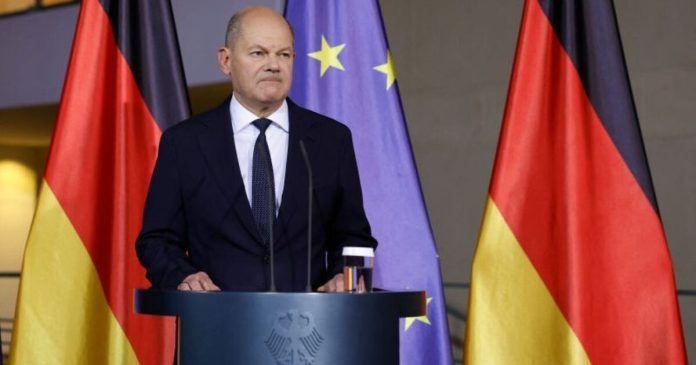German Chancellor Olaf Scholz announced after the collapse of his coalition that he is ready to hold early elections. The statement came after German Opposition Leader Friedrich Merz called for early elections as early as January. Holding snap elections could materialise in exchange for opposition support for key legislation, according to Scholz.
The Chancellor’s decision to hold snap elections marks a significant departure from Scholz’s previous statement that he would call a vote of confidence on 15 January to hold elections “before the end of March” after his coalition government collapsed earlier this week, as years of tension culminated in a dispute over how to plug a multi-billion dollar hole in the budget. The chancellor sacked Finance Minister Christian Lindner, prompting the Free Democratic Party to quit the government.
However, Scholz said the “democratic” parties in parliament would have to agree on what laws might get passed by the end of the year and called for calm to discuss the election date. Despite, he declined to say whether there were any specific laws he would push for to agree to early elections.
“That understanding could also answer which point in time is the right one to hold the vote of confidence in the Bundestag, also with regard to a possible date for snap elections,” Scholz told journalists at an informal EU summit in Budapest on Friday.
However, Germany’s Federal Election Office later cautioned the chancellor against holding the election too early. Agency head Ruth Brand said that setting “dates and deadlines” during the Christmas season or New Year’s Eve would make it “virtually impossible to realise” important election preparations.
Earlier, the head of the conservative Christian Democratic Union urged an early election as early as January because Germany cannot risk a prolonged period of political uncertainty. However, the Chancellor reiterated his intention to work together with the CDU to push forward measures to support the economy.
“We simply cannot afford to have a government with no majority in Germany over several months. Things have got to happen quickly,” Merz said. According to a poll by public broadcaster ARD released on Friday, some 65 per cent of German voters favour holding new elections as soon as possible, while only 33 per cent support Scholz’s timetable.
Merz’s statements have not met with a positive reception either. Alice Weidel, one of the leaders of the opposition party Alternative für Deutschland (AfD), stated on her X account that “there are no new beginnings with CDU leader Merz: he flirts with the traffic light parties SPD and Greens as coalition partners and gives Lindner, who failed as finance minister, hope of returning to office.”
In addition, Robert Habeck, vice-chancellor of Scholz’s Green Party, warned that new elections would not necessarily bring an end to instability in the country, given the rise in support for fringe parties in recent regional elections. He pointed to Saxony, an eastern state where attempts to form a tripartite coalition between the CDU, the Social Democrats (SPD) and the left-wing Sahra Wagenknecht Alliance (BSW) failed on Wednesday.
The snap election must be called within 60 days of the dissolution of parliament, which must be held within 21 days of the confidence vote.
German output is expected to fall for the second year in a row in 2024 amid profound problems in the automotive industry, chemical and mechanical engineering sectors. The country’s difficulties are likely to be made worse by the re-election of Donald Trump as US president, who has pledged to pursue protectionist policies that will hit European exports hard.
